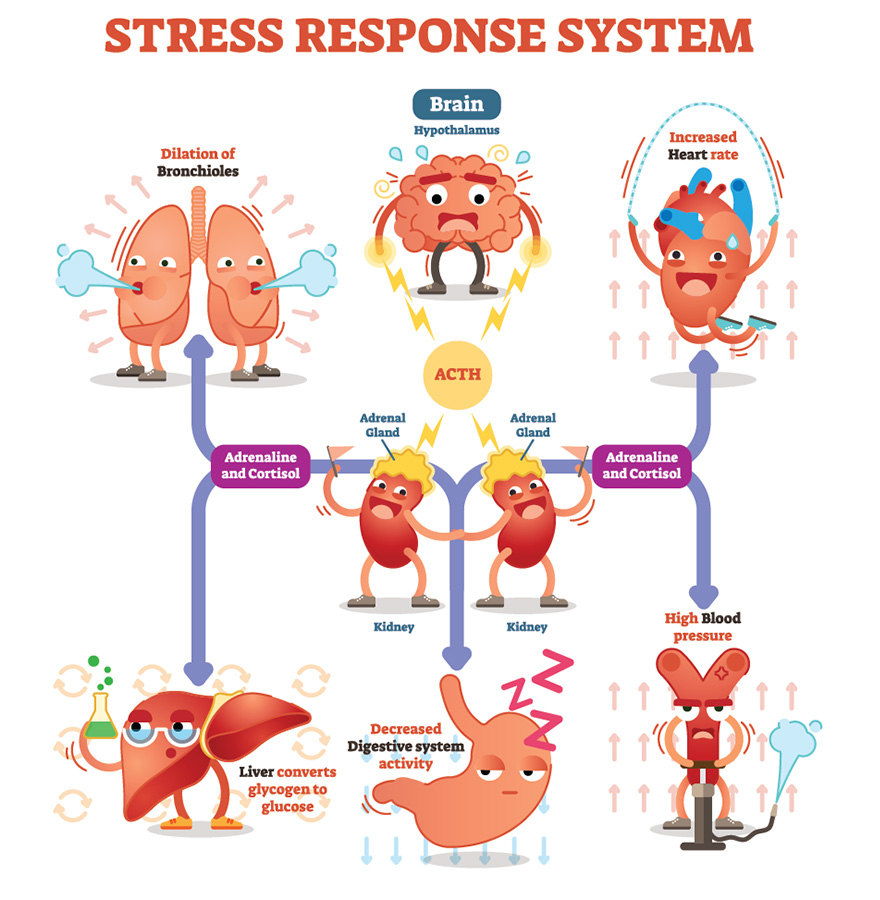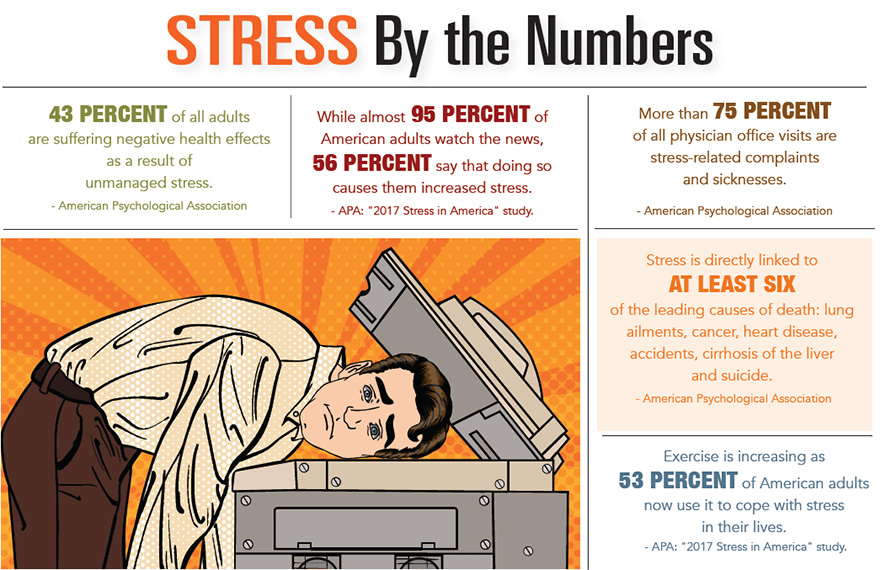Have you ever noticed the almost perverse pleasure we adults take in either bemoaning or bragging about our hectic work schedules and lifestyles?
Psychologists suggest that our deliberate “hyper-busyness” may be a way to say to the world, “See me: I am productive and useful. Therefore, I have value and I matter.”
Today’s excessive work ethic has become a sort of status symbol – the wealthier you are, the harder you must have worked to achieve success. So we work and work and work some more because we want to be relevant, too.
However, what we often don’t realize is that with all this driven activity, we may be stressing our minds and bodies to the point of hurting our health. More accurately, it is our reaction to persistent stress that is the culprit here. If not handled properly, chronic stress can damage you both mentally and physically – and yes, long-term stress can even shorten your lifespan.
Dr. Frank Cuoco, a cardiac electrophysiologist with Trident Medical Center in North Charleston, sees a whole litany of stress-related heart issues on a regular basis.
“Although the stressors may be different for a 30-year-old and an 80-year-old, today men and women alike are suffering from the effects of long-term, unmanaged stress,” he said. “They are dealing with abnormal heart rhythms, increased cholesterol plaque in their arteries, high blood pressure and weakening of the heart muscle. They are also at higher risk for stroke and heart attack.”

Dr. Cuoco sees technology as a major part of the problem.
“People need to find a way to periodically unplug. It is extremely stressful to be connected to work 24 hours a day. We need time to shut off the demands of the world and social media.”
Dr. Matt Murrin, owner of Chiropractic USA in Mount Pleasant, often sees stressed-out patients whose muscles and bones have been weakened by an unending barrage of cortisol, the hormone released by the adrenal glands when on high alert.
“I treat conditions involving accumulation of adipose (belly) fat, gastrointestinal irritation and muscle and joint pain,” he reported. “Patients are also dealing with decreased immune system functioning, which slows the whole healing process, opens the door to common sicknesses such as colds and the flu and increases the danger of invasion by other potentially life-threatening illnesses.”
“People need to find ways to combat excess stress in their lives,” he suggested. “Whether you start exercising, seek counseling or get adjusted, the sooner you can rid your body of unmanageable stress, the sooner you will assist it to heal and move forward and the sooner you will bounce back to being you.”
The mind is not immune to the effects of long-term stress. Studies confirm that certain areas of the overstressed brain literally change in physical structure. The results prematurely age the brain and may affect spatial memory, short-term memory, regulation of integrated social processing and its ability to handle stress in the future.
According to Greenville’s Brionna Morse, a health and wellness coach, “I believe a person’s stress level can create a massive impact on body chemistry and physical and hormonal responses. I created The RAD Frontier™ program to tackle repressed emotions that have such a huge effect on stress levels.”
Morse continued, “As humans, we are in a state of constant movement to achieve and accomplish as much as possible. We are so focused on the outcome that we negate the importance of taking care of ourselves. We move from one task to the next without taking time to stop, check in with ourselves and give our body and mind breaks to refuel and decompress.”
It makes sense that if we want to live long, satisfying lives, we need our hearts to be functioning correctly, our bones and muscles to be strong and healthy, our immune systems to be fighting off disease and our brains to retain their faculties. To support these systems, we must give consideration to managing the inevitable stress that accompanies busy living on planet Earth. Lifestyle changes can make a huge difference. If you are feeling overwhelmed, reach out for help today.
By Janet E. Perrigo
